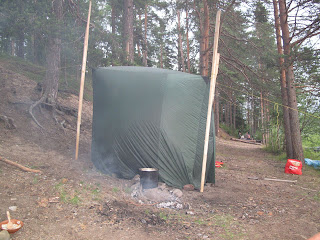About the time we decided to head back, the wind kicked up, which meant the sail had to come down and the oars had to go into the water fast.
PSU Russian Flagship St. Petersburg, 2011-2012
Monday, July 23, 2012
For All You Vikings....
About the time we decided to head back, the wind kicked up, which meant the sail had to come down and the oars had to go into the water fast.
Saturday, April 21, 2012
Свежие огурцы
Sunday, March 11, 2012
Internships
Monday, February 6, 2012
A Note About the Protests
Tuesday, January 31, 2012
The Other Side of the Wall
Saturday, January 28, 2012
Ask a Stupid Question
Easier done than said and I say it’s even necessary. Although when I asked mine, I did so with some hesitancy. It was one of those questions the answer to which seems so logical that no matter where you are in the world, that answer would be the same. However, on the way home, when it was clear that the train I was on would not, in fact, be returning to the same station from which it had left, I knew that my question had been legitimate.
Obvious. Why on earth would I ask whether a train that was leaving Moskovsky station would then return to that same Moskovsky station? That line of perplexity was all over the face of the girl behind the glass, and it looked as though I was the first customer ever to have succeeded in bringing her to this level of disorientation. After a good pause, she pronounced the words, “In general, yes.”
And in general, I’d say ask the question. This is my conclusion after a number of years living overseas. In your home country you grow up with your home culture and your culture’s idea of what is logical. Once you leave, you’ve got to figure out someone else’s logic. Which is difficult because, well, it’s logic, which means you can’t argue with it. Even if it’s dead wrong.
I asked because I had to. I’d made the mistake of researching too thoroughly the various train routes that would get me to and from the city of Novgorod. Depending on the website, I was given a choice of a three-hour trip from Novgorod to Moskovsky station or a four-plus hour trip that would land me at Vitebsky station and tack on a metro ride into the city. Obviously, I wanted the option that would take less time and bring me closer to home. But no matter how many sites I tried, I couldn’t make the internet come to a consensus on what my reality would look like.
So I asked at the station. And I got my answer. And thirty minutes before my train left Novgorod to come back to Petersburg, reality showed its face. I thought about the wisdom in having asked that morning as I rode back on the train, not three hours to Moskovsky and not four-plus hours to Vitebsky, but somewhere in between the two. I was riding on a third option, which my research had not turned up (and I’m wondering if the first one really exists). I was going to Obukhovo station. It’s not in the center of the city but it is on my metro line, so things weren’t as bad as they could have been.
Yes, both the internet and the station representative gave me wrong information. I still say ask. In general. Living abroad requires a balance between trust and doubt. Asking a seemingly stupid question is good practice honing your intuition for “what might be,” especially when your gut is nagging you. Listen when your gut is nagging you. In a country of different logic, the reality of a situation can often be neither what you expect nor what you are told. Doubt is a step toward being a little more prepared for reality.
Sunday, January 1, 2012
Happy New Year!!






 ... is Nevsky!!
... is Nevsky!!

















